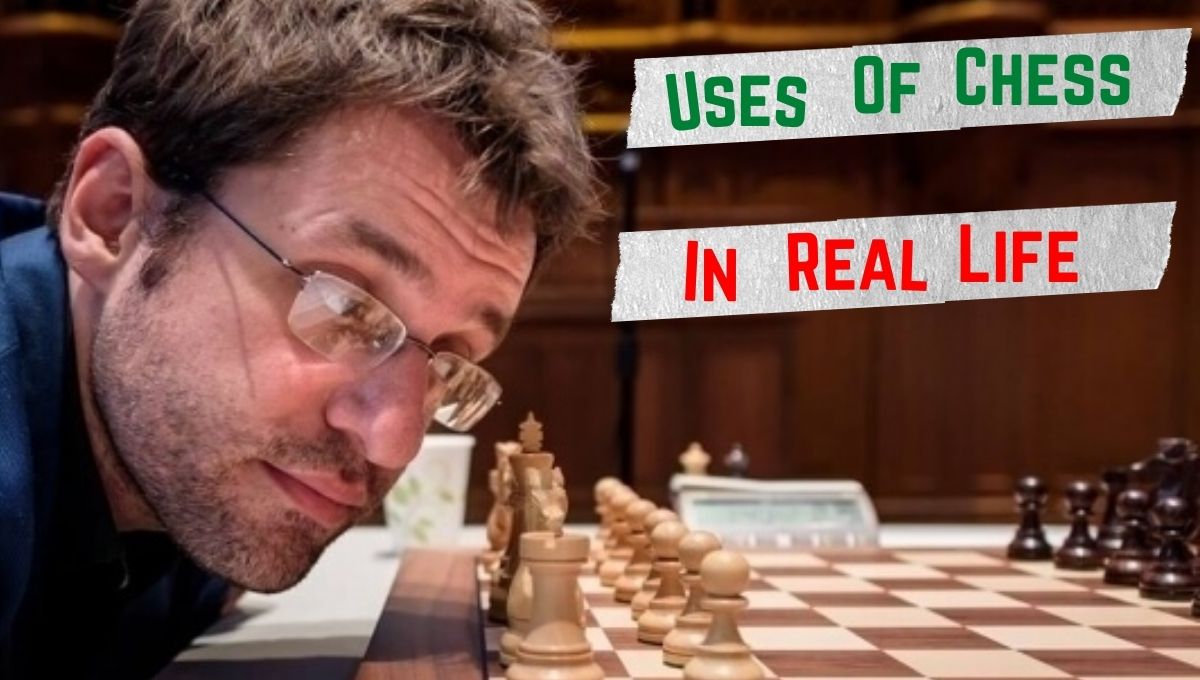Yes, chess is useful in real life, but it can also be a big waste of time. While playing in moderation can offer numerous benefits, excessive playing can lead to addiction that can negatively impact other crucial aspects of life, such as education, employment, and social relationships.
In this article, we will discuss the ways in which chess can be useful in your life. For downsides, check out this separate article.
By balancing the advantages and drawbacks of the game, you can reap the benefits of chess while avoiding its potential pitfalls.
Uses Of Chess In Real Life:
1. Good for Socializing
Chess is a popular game that provides an excellent platform for socialization.
Whether playing at a local club, engaging in online matches, or gathering with friends and family for a game, it offers an interactive and challenging way to connect with others.
It’s strategic gameplay brings people together, promoting positive relationships and healthy social interaction.
Playing chess can not only be enjoyable but also an opportunity for personal growth and community building.
2. Problem Solving
Another good use of chess in real life is it’s ability to improve one’s problem-solving skills.
The game requires players to analyze different situations and find solutions to the challenges presented on the board.
Continual practice of this critical thinking develops problem solving abilities that can be applied to real life situations.
Chess is fun and it provides a valuable opportunity for intellectual growth and development.
3. Focus and Concentration
Chess is a mentally demanding game that demands players to maintain their focus and concentration.
Engaging in this type of concentration continually can improve players’ ability to focus and concentrate, which can be applied in various settings, such as work or academic pursuits.
Chess can serve as a valuable tool for personal development, helping individuals achieve their goals by enhancing their mental acuity and focus.
4. Planning and Forecasting
Chess can improve planning and forecasting skills by requiring players to think several moves ahead and consider potential outcomes of each move.
This strategic thinking helps develop foresight and the ability to anticipate future events.
By continually practicing planning and forecasting, players can improve their ability to make predictions in both personal and professional settings.
Chess can serve as a valuable tool for personal development and can help individuals make better decisions and reach their goals more effectively.
5. Memory Boost
Chess requires players to memorize various strategies and tactics, which can help improve overall memory function.
Continual practice of this memory recall can strengthen the ability to retain information.
This can be applied in various tasks that require the recall of information, from remembering to-do lists to recalling important details in a meeting.
Playing chess can be an enjoyable activity and also a valuable tool for personal development and improvement of memory function.
6. Improved Critical Thinking
Chess requires players to analyze complex situations and break them down into step-by-step processes to solve a scenario.
This type of problem-solving and decision-making can help improve critical thinking skills, which can be applied in real-life decision-making situations.
Whether in the workplace or in personal life, improved critical thinking skills can lead to better, more informed decisions and greater success.
Chess can serve as a valuable tool for personal development and help individuals enhance their critical thinking abilities.
7. Better Decision-Making Skills
Chess requires players to make quick decisions based on the information available to them, which can help improve decision-making skills in a variety of real-life situations.
This can include personal finance decisions, business decisions, and more.
Continual practice of this type of decision-making can develop the ability to make informed choices and reach goals more effectively.
Chess can be a valuable tool for personal development and help individuals enhance their decision-making abilities.
8. Increased Creativity
Chess can increase creativity by encouraging innovative thinking and problem-solving.
Players must continually find new and unique ways to overcome challenges on the board.
Continual practice of this type of creative problem-solving can improve the ability to think outside the box and come up with innovative solutions.
This skill can be applied in various areas, such as finding unique solutions to problems at work or in personal projects.
Chess can be a valuable tool for personal development and help individuals enhance their creative thinking abilities.
